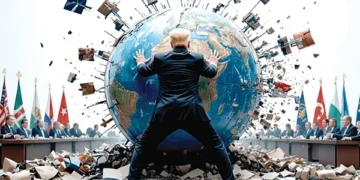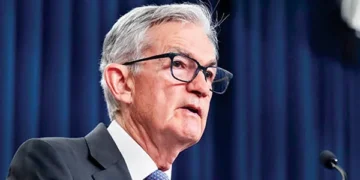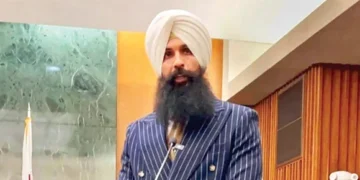Team Blitz India
THE US-India Strategic Partnership Forum (USISPF) has resulted in a number of deliverables, including a new implementation arrangement for a research agency partnership to expand international collaboration in a whole range of areas.
The areas of collaboration include Artificial Intelligence (AI), Quantum, and advanced wireless technologies, shared Nathaniel C Fick, Ambassador at Large, Bureau of Cyberspace and Digital Policy.
The USISPF was formed in 2017 as an independent non-profit, non-Governmental, and non-partisan organisation, headquartered in Washington, DC, with offices across both countries. On his last visit to India during India’s leadership of the G20, according to Fick, this strategic partnership was elevated by convening a bilateral initiative on critical and emerging technologies.
Global collboration
Incidentally, the research agency partnership to expand international collaboration is between the National Science Foundation in the United States and Indian science agencies.
“A second deliverable was the establishment of a joint Indo-US Quantum Coordination Mechanism, and that includes participation from industry, from academia, and from the Government,” he stated during a recent virtual interaction with the media. A third deliverable, he said, has been advancing cooperation on R&D in 5G and 6G, facilitating the deployment of open radio access networks, open RAN in India, and trying to build quickly to globally economies of scale in that sector.
Guiding principles
According to Fick, in order to build this broad concept of digital solidarity, the strategy lays out three guiding principles. The first is an affirmative vision for a secure and inclusive cyberspace about which “we are quite deliberate,” he stated.
The second, he said, is full integration of cybersecurity, sustainable development, and innovation; and third, the whole digital ecosystem, not only cyber security as traditionally defined, but everything from the cloud to cables – every aspect is important.
In his opening remarks, Fick observed that to build a vibrant and secure tech future, neither the most powerful or largest countries in the world, nor the biggest and most capable tech companies can afford to go it alone. “Standing shoulder to shoulder with partners and allies is essential. And only together can we truly advance a shared vision for a rights-respecting, innovative, and secure tech ecosystem,” he said.































